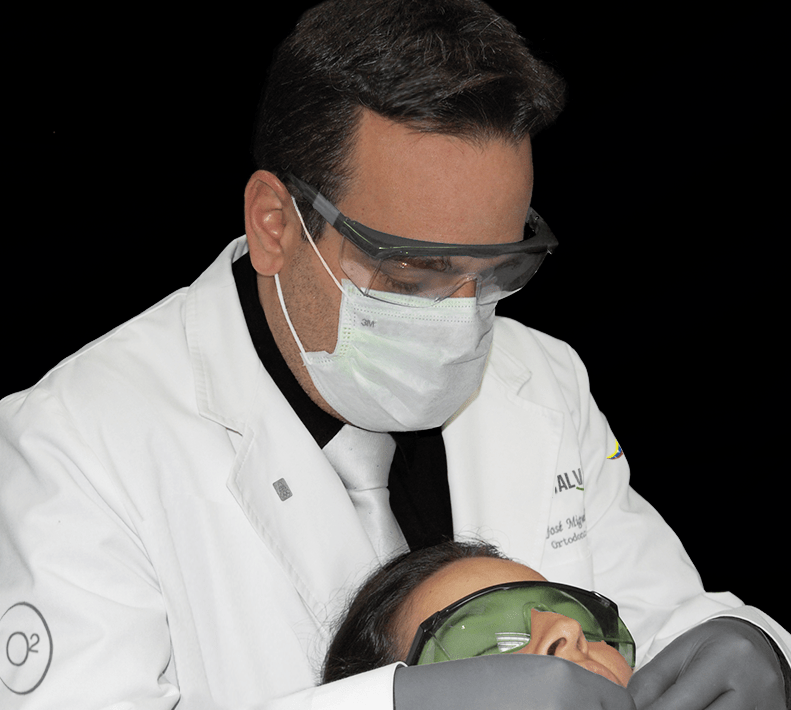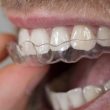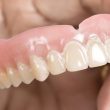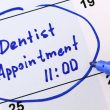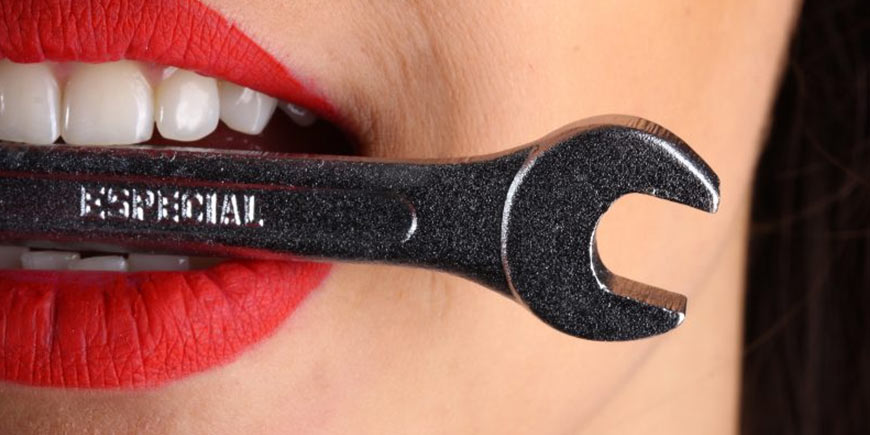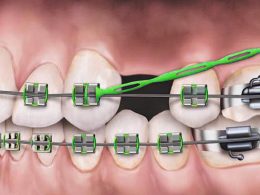Table of Contents
Do you need orthodontic treatment for you or your child? If so, you may be wondering if this is something that your general Dentist can do, or if you will need to visit an Orthodontist instead. You may not be very sure of the differences between the two professionals and wonder what a Specialist could offer that your Dentist is not able to do.
The tendency to always look for the most comfortable, quick and economical solution of things is common, but you should know that in the case of Orthodontics, there are many major reasons to consult an Orthodontist when a corrective treatment of malocclusions with brackets or fixed appliances is contemplated.
Although there are some apparent similarities between Dentists who fit appliances and Orthodontists, their capabilities are not comparable, and deep down there are many important differences that must be taken into account when making the choice. Between 2,800 and 4,500 hours of additional academic training and supervised professional practice is the main one.
To learn more about all these differences and why they are so important, just keep reading!
Education and Training Levels
Both Dentists and Orthodontists begin their professional careers upon graduation from the School or College of Dentistry, but from that moment on, they take different paths. Postgraduate programs in Orthodontics are extremely competitive, and only the most outstanding students from each class are chosen to continue their education in the Specialty of Orthodontics.
Once accepted into the fourth level course, future Specialists will undergo an additional two or three years of full-time training, concentrating exclusively on the Specialty of Orthodontics, with a focus on craniofacial growth and development, diagnosis of malocclusions and biomechanics; among many other fields of knowledge.
To put it simply, Orthodontists are essentially Dentists who also have additional specialized training in Orthodontics. Although many do, general Dentists are not formed and were not really trained to place braces and “straighten teeth”.
Only after a general Dentist has successfully completed a formal and recognized University Postgraduate degree in Orthodontics (not a diploma, short course, or distance training), will he be able to refer to himself as an Orthodontist.
What Additional Knowledge Does a True Orthodontic Specialist Acquire?
In fact many, since during the Specialization studies the Dentist deepens and perfects concepts that he only knows superficially. In addition, through constant and supervised practice on hundreds of patients, he develops the manual skills necessary to correctly manipulate braces, wires, and other Orthodontic devices.
Some of the main areas of knowledge taught in Orthodontic Postgraduate courses are:
Craniofacial Growth and Development
Knowledge of the growth of the skull and the facial skeleton is a complex and fundamental process for diagnosis and treatment in Orthodontics. The complete development of the skull represents the sum of its separate parts, in which growth is highly differentiated and occurs in different ranges and directions.
The diagnosis and treatment of any skeletal or functional malocclusion in children or adolescents, presupposes the dominance and prediction of the growth of the neighboring structures of the mouth. The development of the jaws and teeth is closely related to the development of the tissues of the face and skull.
Embryology and Tooth Eruption
A true Specialist must know how teeth are formed from the embryonic gestation period and how they erupt throughout life.
Tooth eruption is very complicated and is influenced by several factors that can act positively or negatively in establishing a correct occlusion or bite. These factors include a favorable eruptive sequence, a satisfactory size-available space relationship, the achievement of an adequate molar relationship with minimal reduction of the space available for the bicuspids and, finally, a favorable bucco-lingual relationship of the alveolar processes.
Cephalometric Radiography
The term cephalometry, from the Greek “kephale” head and “metron” measure, is the set of procedures that are followed for the measurement of the head and the description and quantification of the structures involved in a malocclusion. This technique is part of a series of records that must be made and taken into account when making a definitive diagnosis in Orthodontics.
Cephalometry allows to know the morphology, physiology and craniofacial pathology, and to individualize a therapeutic procedure for its correction. During treatment, it helps to evaluate its evolution and the need for possible modifications. Once completed, it is an important method of estimating and predicting the stability of the result.
Dentofacial Orthopedics
It is a science that aims to modify the bone growth of the face and jaws by applying heavy forces with intraoral and extraoral appliances.
Some of the specific objectives of Dentofacial Orthopedics are to correct the width, length and position of the jaws; correct its growth when it is altered, favor a better dental eruption, reduce or eliminate the degree of crowding, correct the sagittal, transverse and vertical relationships between the jaws; correct possible facial asymmetries and preserve or restore the spaces for the eruption of permanent teeth.
Dentofacial orthopedic treatments are only possible before maturity or sexual development, when the patient still has a growth potential useful for therapy.
Biomechanics
Biomechanics is defined as the science that deals with studying and controlling the vectors, intensities, senses and physical effects of the forces that must be applied to the teeth to move them and correct their position. Biomechanics is extremely complex and involves many hours of study and training to understand and master very advanced physics concepts, mainly associated with forces and vectors.
Without knowing biomechanics, the treatment would be completely empirical and high-risk, since the application of excessive or misdirected forces could lead to very serious problems, including root resorption and tooth loss.
Retention and Stability
One of the most difficult things in Orthodontics is preserving the results obtained when removing the braces, since teeth tend to move throughout life, with or without prior Orthodontics.
Therefore, the retention and stability of the treated cases requires advanced knowledge of the occlusal and masticatory function, so that the distribution and dispersion of the forces generated by chewing play in favor and not against the new smile.
Only in Postgraduate courses in Orthodontics are the pertinent techniques taught for this purpose, which require hundreds of academic hours for their learning and improvement. Although it seems simple, the design, manufacture, installation and control of the retainers; requires a lot of knowledge and experience.
Orthognathic Surgery
Although the Orthodontic Specialist does not perform surgical interventions, he is trained to plan orthognathic surgeries and work in conjunction with the Maxillofacial Surgeon to solve the most difficult and complex cases; such as severe skeletal malocclusions and dentofacial deformities, which generally affect people’s facial appearance.
Only the Orthodontist is able to accurately diagnose the type of anomaly, complete the dental decompensations necessary to make the surgery viable (pre-surgical Orthodontics), perform the surgical arches necessary for the operating room and fine-tune the alignment and bite before removing the appliances (post-surgical Orthodontics).
Only a Specialist may perform combined orthodontic-surgical treatments.
Can General Dentists Straighten Teeth?
Technically yes, they can. There are some Dentists who can provide Orthodontic care to their patients. However, with many limitations.
In general, this is only possible if the Dentist has dedicated himself to taking continuing education seminars and gaining experience in the field. Still, he will only have a basic preparation, as these workshops and seminars lack the kind of training, clinical practices (on patients) and hours of study necessary to truly learn and master the Specialty in depth. A superficial knowledge and training are not enough to be able to offer the best possible treatment to patients as far as Orthodontics is concerned.
Are You Still Considering a General Dentist for Your Orthodontic Treatment?
If your family Dentist offers Orthodontic services, you may still be considering putting yourself in his hands for treatment. This is understandable, since you are already familiar with his way of working and feel comfortable in his office.
All Dentists receive some basic training in Orthodontics during their undergraduate studies, but before making a decision, consider that an experienced Orthodontist:
- Will Be Able to Provide You with More and Better Treatment Options, with a wide variety of appliances and techniques to choose from.
- Will Have Much More Experience and Knowledge, acquired through the treatment of multiple cases that are similar to yours.
- Will Be Much More Skillful and Efficient, since he only dedicates and focuses on his Specialty.
- Will Be Able to Guarantee the Best Possible Result, without the commitments and limitations characteristic of non-specialized treatments.
Because Orthodontists are exclusively practiced and only dedicate themselves to their Specialty, they have all their time to expand their knowledge and perfect criteria and skills.
All experienced Orthodontists are well versed in devising the best treatment plan for each patient. This tends to differ from general Dentists, who generally resort to the only technique or way of working that they know.
“Between 2,800 and 4,500 Hours of Additional Academic Training and Supervised Professional Practice in Orthodontics, Is the Main Difference Between Orthodontists and General Dentists”.
DENTAL TIP
The Final Decision Will Always Remain in Your Hands!
It will always be up to you, as a patient, to choose the healthcare provider that best meets your needs. Some general Dentists are quite experienced in Orthodontics. However, keep in mind that the quality of the results will never be the same, and the possibility of failure and retreatment will be very high.
You could look at it this way: if you suddenly found yourself, God forbid, in need of open heart surgery, would you seek care from your family Physician or an experienced Cardiovascular Surgeon? Although surely your Doctor has received some training in surgical techniques related to the heart, not even joking would he be the right professional to perform them. The same thing happens with your teeth.
Another virtue of Orthodontists is to avoid complications, some of an irreversible nature, and which occur when small details are overlooked. By seeking treatment from someone with more education, experience, and skill; you can be more safe, confident and satisfied with the results of your Orthodontics. It is our final consideration!
How to Save Thousands by Getting Dental Work in Venezuela
On average, dental work in Venezuela is about a third the price of what you are used to paying at home, without a drop in the quality of care. All the process takes is just a little research and a few more logistics. In the “Dental Tourism” category of this same blog we describe all the considerations necessary to get dental care done in Venezuela.
The first thing you want to do is get a quote for the dental work you need done by our team. Most of the time, simply sending a few photos and X-rays to us will do just fine. The online consultation will provide a strong idea of what will need to be done, and will be able to provide you with a pretty close cost estimate for the dental procedures.
Through our WhatsApp or Email you can ask all the necessary questions about the proposed treatment and its details. DENTAL VIP has specially trained personnel for this function.
Once the quote is approved, you must indicate the date of your trip to corroborate the treatment viability in the selected period, ensure your accommodation and proceed with the purchase of air tickets.
Congrats! Now you are on your way to saving thousands by getting dental work in Venezuela.
